GenderScoop: Elections, disinformation against women, and fighting for ‘digital rights’

April 2022 Scoop: Elections, disinformation against women, and fighting for ‘digital rights’
What we gather this month:
Manifestations of online gender-based violence (OGBV). Incidence of OGBV continued, pressing concerns on safe online spaces for women.
- Danish national nabbed for sharing photos, videos of Filipino wife
- “The victim told authorities that the suspect allegedly shared her sexually explicit videos and photos among her friends for the reason that the suspect wanted to continue their relationship and wanted her back.”
- Barber nabbed over ‘sextortion’ raps
- “When their love went sour, a barber demanded cash from his ex-girlfriend in exchange for keeping her nude photos and their sex videos away from the public eye.”
- SC orders courts to prioritize cases of violence vs women, children
- “During the pandemic, women were also disproportionately affected when Filipinos were pushed out of the labor force as they had to take on additional responsibilities of overseeing online schooling for their children.”
- Nadine Lustre shuts yet another pregnancy rumor
- “She’s also put rude body shamers in their place after they left nasty comments about her on Twitter.”
- Safe spaces in the digital world
- “It must be noted that the Safe Spaces Act protect men, women, and members of the LGBTQI+ alike, in the same way that it punishes offenders regardless of their gender or sexual orientation.

Gender, ICT, and elections: disinformation, sexist attacks. Campaigns continue as election day nears. Sexist attacks especially against women candidates appear.
- PCW warns vs VAW, objectification of women during election season
- “PCW likewise warned that using ICT in altering videos and impersonating identities of victims online or posting lies about victims to harm their reputation are penalized under the Safe Spaces Act.”
- Women’s rights advocates condemn the objectification of women at a UniTeam rally
- “A video taken from a BBM-Sara rally is currently being shared in various social media platforms. The video features a scantily clad woman dancing provocatively as some form of entertainment during the official campaign activity.”
- IBP condemns ‘pattern of sexism’ in election campaign
- “The lawyers’ organization stressed that a woman’s body and sexuality must not be used for dirty politicking. It cited instances of “scantily clad women” hired to entertain crowds in campaign sorties, and of some ‘candidates cajoling women into sitting on the lap of male candidates’.”
- De Lima slams fake news about 4Ps services being discontinued if incumbents are not elected
- “The lady Senator from Bicol urged the public to be more vigilant against the purveyors of fake news who are taking advantage of the upcoming elections to achieve their selfish agendas.”
- Gendered disinformation: The ugly intersection of fake news and sexism
- “While the drug accusations were inflammatory, the thing that helped President Rodrigo Duterte ensure De Lima was jailed was, of all things, a sex tape.” See also:
- Online impunity: Assault on Robredo daughter just one of countless against women in PH
- “Last Monday, links to fake videos, supposedly showing Aika, 34 years old, spread on the internet with screenshots of Google search results showing the fake videos had been shared on Facebook and Twitter, two social media platforms that are allowing themselves to be outlets of falsehoods and misinformation.” See also:
- ‘Stay focused on doing good’: Aika Robredo told amid fake sex video issue
- Robredo vows legal action for attack vs daughter
- ‘The legacy of sexism, misogyny’: Organizations denounce sexual harassment aimed at women candidates, families
- World March of Women-Pilipinas condemns in the strongest manner possible the lewd and pornographic sites set up by unscrupulous groups
- Gabriela condemns online sexual harrasment aimed at Aika Robredo
- DOJ looks into fake sex video of Leni daughter
- NBI cybercrime division investigating fake sex videos of Robredo daughters
- “Last Monday, links to fake videos, supposedly showing Aika, 34 years old, spread on the internet with screenshots of Google search results showing the fake videos had been shared on Facebook and Twitter, two social media platforms that are allowing themselves to be outlets of falsehoods and misinformation.” See also:
- Female candidates Leni Robredo, Sara Duterte face gendered attacks online
- “When national leaders are misogynists, female opposition candidates are more likely to be belittled, sexualized, and disrespected.”
- [WATCH] “Halalan at Kababaihan: Tungo sa Mapagpalaya at Ligtas na Internet”
- FMA spoke with women’s rights advocates to shed light on (1) internet accessibility; (2) freedom of expression and information online; (3) online gender-based violence and access to justice; and (4) safety and security, and to iterate the changes they want to see offline and online come the next Philippine president.

Pinays rising online, in field of STEM. Is the growing visibility of women online and in the STEM field a promising indicator for empowerment and gender equality?
- Women in Science: More Filipinas are pursuing STEM careers – DOST study
- “Data from the Philippine Statistics Authority (PSA) for the years 1990 to 2015 show that females account for nearly half of the country’s total science and technology (S&T) workforce. There are, however, still some gaps and inequalities that still need to be addressed.”
- Google, YouTube spotlight mold-breaking Pinay content creators
- “Internet giant Google and video-sharing platform YouTube last March 30 capped off Women’s Month by featuring four Filipina YouTubers to share how they overcame biases to get where they are today.”
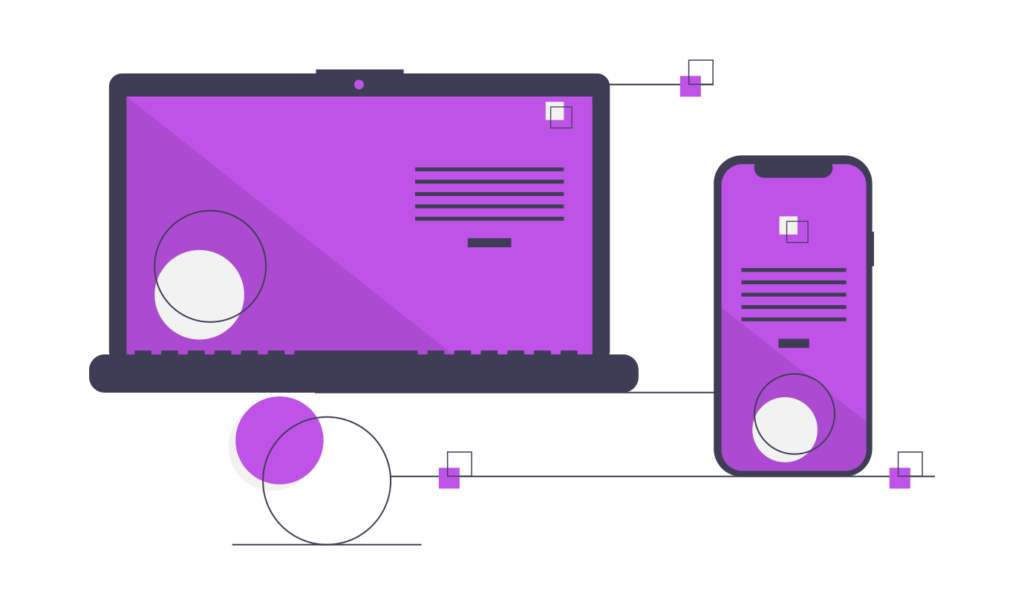
Other: Digital rights in the Philippines. We recognize that intersecting issues of human rights and technology open up many branches of conversations and contexts. Here are recent happenings that may help understand ‘digital rights’:
- Video: Digital Rights amid the Philippine Elections
- “On April 9, EngageMedia hosted the online event ‘Safeguarding Digital Rights Amid the Philippine Elections’ to discuss these digital dangers and encourage action against practices threatening human rights and Philippine democracy.”
- Duterte vetoes SIM card registration act due to social media provision
- “The President noted the inclusion of social media providers in the registration requirement was “not part of the original version of the bill and needs a more thorough study,” said acting presidential spokesperson Martin Andanar.” See also:
- How will mandatory SIM card registration impact women’s rights?
- “The limitations on privacy and anonymity, will also impact the safety of many women, especially if they are survivors of violence. Marginalized communities such as women and the LGBTQI+ community, will also face compounding effects on their right to self-expression as their freedom to be anonymous is compromised.”

Interested about digital rights in the Philippines?
Tune into Foundation for Media Alternatives’ Digital Rights Roundup.
Check out the Philippine Digital Rights Electoral Agenda.

Beyond the Philippines. The Internet is boundless. Here are reads this month from across the world that may affect how we look at gender & ICT issues in the Philippines:
- Social media may affect girls’ mental health earlier than boys’, study finds
- APC: White paper on feminist internet research
- Seeding change: Meet Hackers Comunitarias, the women challenging communications, tech and access inequalities in Mexico
- High-profile women on Instagram face ‘epidemic of misogynist abuse’, study finds
- Meet the off-screen workers who keep the adult webcam industry running
- Feminist by Design: Ways of knowing and epistemic approaches about feminist internet research
- How cellphones transformed life at a women’s prison in Argentina
- Protecting Defenders Online: United Nations Human Rights Council 49th Session (HRC49) Side Event
- Indonesia passes new sexual violence law amid growing cases

LOOK: Jamael Jacob, FMA’s Privacy Program Coordinator, was interviewed for Coda’s article on the impact of mandatory SIM card registration on digital privacy and freedom of speech:
Can you put this into context in terms of digital privacy and free speech in the Philippines more broadly? Here in the Philippines, privacy and data protection are still seen as deserving less consideration compared to other human rights. For the government, it is also more convenient to set aside allegations of unwarranted surveillance simply by referencing public safety, national security or public interest. This is exactly what happened with SIM card registration. [In contrast to privacy] free speech is more vigorously defended by rights advocates, but it remains under constant attack through the weaponization of the country’s libel laws. Read the full article: Duterte vetos surveillance law in the Philippines, protects his troll farms

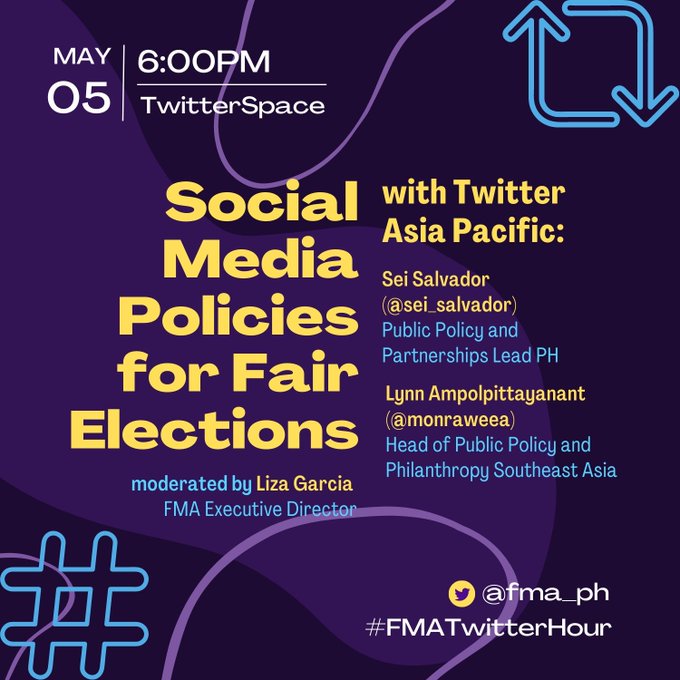
LATER: “Social Media Policies for Fair Elections” | 6PM | TwitterSpace (@fma_ph)
Join FMA as we speak with Twitter on social media policies for fair elections. Twitter is one of the spaces that people turn to for information and for discussion of issues, including during elections. We have seen how it supported the efforts of the Commission on Elections in 2016. For the 2022 elections, Twitter has partnered with the Comelec, and with civil society organizations, as well, to provide relevant information to help ensure safe and fair elections in the Philippines.
This session will inform the public, especially the Filipino voters, about the policies of Twitter in relation to the upcoming 2022 Philippine elections.

This month’s Feminist Principle of the Internet (FPI)
While unfettered access to the internet is a crucial part of our struggle, it is not enough. We have to also work on empowered access where women are not merely users of the internet but producers as well: coders, designers, bloggers, creators. Why make a feminist internet?

Help grow awareness on gender & ICT issues in the Philippines. Share this issue and invite your network to subscribe to GenderScoop.
Maraming Salamat!
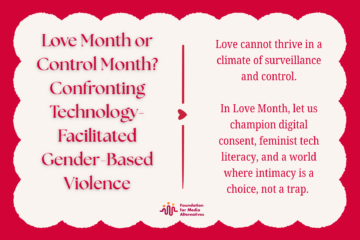
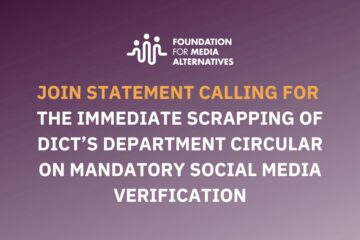
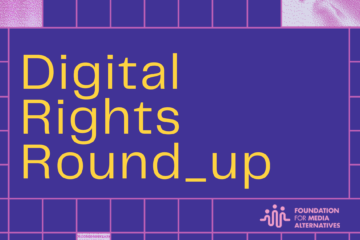
0 Comments